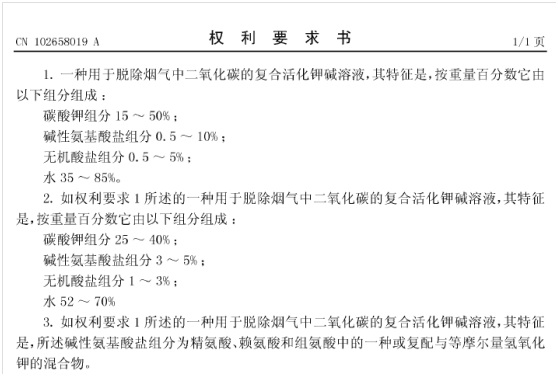如何读懂和翻译专利申请书
(发表于2018-02-20 责编:PENY)
随着科技的快速发展,人们对知识产权保护的意识也越来越强,国际专利申请增长势头迅猛。这势必推动专利文件翻译这一细分专业市场的高增长需求。虽然投入到专利翻译事业的公司和个人越来越多,但仍未能满足其独特的严格需求。这主要体现在:
1、数量需求:专利申请量连年增长,人才短缺。
2、质量需求:专利文件翻译的质量良莠不齐,近年来由于翻译质量原因而导致无效的专利申请屡见不鲜。
下面以金雨为客户提供的专利申请文件翻译为例,就专利文件的翻译进行简单的诠释。
一般的专利申请书主要由几块内容构成:扉页、权利要求书以及说明书,其中扉页和说明书可插有附图,而权力要求书不得插有附图。


从上图中美国和中国专利申请书扉页可以看出,不同国家的专利申请书格式和结构大致相似,但略有不同,一篇专利申请文件的扉页包含的信息量非常丰富,其可能包括以下的主要信息:
(10)公布号Publication Number(一般简写为Pub. No.)
(19)世界知识产权组织国际局World International Property Organization, International Bureau (公布文献的机构),比如:中华人民共和国国家知识产权局
(21)申请编号Application Number(一般简写为Appl. No.)
(22)申请日期Filing Date(Filed)
(25)申请语言Filing Language(国际申请提交时的语言)
(26)公布语言Publication Language(国际公布时的语言)
(30)优先权数据Priority Data
(43)公布日Publication Date(一般简写为Pub. Date)
(51)国际专利分类International Patent Classification(一般简写为Int. Cl.)
(52) 国家专利分类National Patent Classification,比如:美国专利分类(一般简写为Int. Cl.)
(54)发明名称Title
(57)摘要Abstract
(71)申请人姓名Applicant
(72)发明人姓名Inventor
(73)权利人、持有者、受让人或权利所有人的名称或姓名Assignee
(74)律师,代理人或公司Agent
(75)发明人兼申请人姓名Inventor/Applicant
(81)专利合作条约指定国Designated States
对于扉页内容的翻译,除了摘要部分,其他部分基本上均可对号入座。

上图所示的权利要求书(Claims)由一项或多项权利要求组成,专门用于记载权利要求,其将成为专利权的保护范围,是申请书中的最重要的内容。有些国家的权利要求书会放在说明书之后。独立权利要求一般分为两个部分:前序和特征。
前序部分主要描述要求保护的主题名称以及该项发明与最接近的现有技术共有的技术特征。
特征部分主要描述发明区别于现有技术的技术特征,这是权利要求的核心所在,这部分紧接前序部分。
如权利要求1所述的一种用于脱除烟气中二氧化碳的复合活化钾碱溶液,其特征是,按重量百分数它由以下组分组成:
碳酸钾组分25~40%;
碱性氨基酸盐组分3~5%;
无机酸盐组分1~3%。
A complex activated potash solution for removal of carbon dioxide from flue gases as claimed in Claim 1, featuring the following components by weight:
Potassium carbonate: 25 - 40%;
Basic amino acid salts: 3 - 5%;
Inorganic acid salts: 1 - 3%.
本示例译文中的前序为a complex activated potash solution for(一种复合活化钾碱溶液),应用在前序中通常会有an apparatus (某装置)、a method (某方法)、an apparatus for(doing sth.)(用于什么的装置)、a method for(doing sth.)(实现什么的方法)等。“featuring”是一个过渡词,用于衔接前面的前序部分和后面的主体特征部分。在权利要求书翻译的过程中,还会碰到频繁使用的“套话”,比如本例中的“如权利要求1所述(as claimed in Claim 1)”,这些都需要我们进行长期积累,以便熟练使用。

上图所示的说明书(Specification)是专利申请文件中非常重要的一种文件,它起着公开其所发明的技术内容的作用,为权利要求保护的范围提供支持。专利说明书主要包含以下几个部分:
1. 技术领域Field of The Invention (Technical Field) :要求保护的技术方案所属的技术领域。
The present invention relates generally to methods and apparatus for production of hydrogen, and, more particularly to methods and apparatus for producing hydrogen from an aluminum-based water-split reaction in a manner that is tailored to meet the requirements of particular equipment or applications, by differential distribution of one or more of the solid reactant materials in a matrix or other body such that areas of the differential distribution are contacted by the water in a sequential manner.
本发明总体上涉及生产氢的方法和装置,更具体地,本发明涉及利用铝基水分解反应生产氢的方法和装置,其方式专为满足特定设备或应用的要求而设计,一种或多种固体反应材料差分布置在一个矩阵或其他机体中,以使所述差分分布区域以连续方式与水接触。
2. 技术背景Background of The Invention (Background Art or Related Art):对发明理解、检索、审查等有用的背景技术;反映这些背景技术的文件。
As is well known, hydrogen gas has many different uses in a wide range of industries and activities.
众所周知,氢气在多种工业和活动中有许多不同的用途。
3. 发明内容Summary of the Invention:发明或者实用新型所要解决的技术问题以及解决其技术问题采用的技术方案,并对照现有技术写明发明或者实用新型的有益效果。
The present invention addresses the problems cited above, and provides methods and apparatus for producing hydrogen, plus heat and steam when desired using an aluminum-based water-split reaction, that offer the ability to control and tailor the characteristics of the reaction and thereby the output to meet the needs of differing applications.
本发明解决了上面提到的问题,并提供了生产氢气及需要的热和蒸汽的方法和装置,方法是利用铝基水裂解反应,提供控制能力并调节反应的特性,从而输出氢气以满足不同应用的需求。
4. 附图说明Brief Description of the Drawings (Figures):对附图进行简要描述。
FIG. 4 is a transverse cross-sectional view of a reactant cartridge in accordance with another embodiment of the present invention, in which the chemical components are distribution in a generally concentric pattern about the central water inlet rather than being radially distributed locations as in the embodiment of FIGS. 2-3;
图4是根据本发明另一实施例的反应物燃料筒的横剖视图,其中的化学成分围绕中心水入口大致以同中心模式分布,而不是如图2~3所示位置呈放射状分布;
5. 具体实施方式Detailed Description of The Invention (Embodiments):申请人认为实现发明或者实用新型的优选方式,举例说明或对照附图。
FIG. 1 shows in simplified form a basic reactor unit 10 for generating hydrogen in accordance with the present invention.
图1以简化的形式示出了根据本发明用于产生氢的一个基本反应器单元 10。
6. 实施例Examples。
In this embodiment, the particulate metal oxide initiator 58 is arranged in a generally coaxial mass about the water distribution tube 56, so that upon introduction of water the initiator is the first material to be contacted so as to cause a rapid rise in temperature, and in particular causing heating of the water that is flowing therethrough.
在本实施例中,粒状金属氧化物引发剂58以大致同轴的块状物的形式布置在水分配管56周围,以便引入水时,第一种接触的材料是引发剂,从而引起温度快速上升,并且特别地引起流过其中的水发热。
专利文件中的术语笔笔皆是,从上述示例译文中可见一斑,同时专利文件中术语和句段必须保持高度一致,因此,借此术语库和记忆库来保持术语和句段的一致性显得尤为重要,专利翻译中常用术语包括:the present invention(本发明);the utility model(实用新型);Claims/We claim/What is claimed is/What we claim is(权利要求书);prior art(现有技术);those skilled in the art(所属领域技术人员);embodiment(实施例);accompanying drawings(附图)等等。
专利文件是一种特殊文献,专利翻译是一个难啃的香馍馍,金雨认为,每一位从事专利翻译的公司和个人都必须:
- 具备丰富的专业知识
- 具备精深的翻译技巧
- 不断学习,自我完善
- 细致严谨,日积月累
- 精通翻译辅助软件
- 比客户想得更多
- 更多…
金雨在专利翻译方面已有十多年的积累和经验,拥有专业的翻译解决方案和团队,我们深谙其翻译之道,可为您提供高质量的专利翻译服务。如果您有专利翻译方面的需求或对专利翻译萌生兴趣,请联系我们。